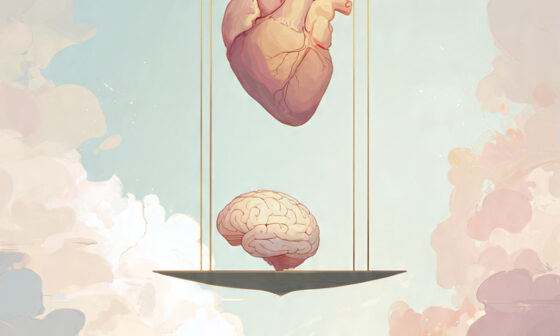Procrastination refers to the act of putting off important decisions or actions.
You are not the only one who struggles with procrastination. Approximately 20% of adults and 50% of students report that procrastination is common. Even people who don’t regularly procrastinate still experience procrastination occasionally in their daily lives.
As you may have noticed, procrastination is a serious problem that can lead to a wide variety of problems. It’s no surprise that procrastination is associated with lower grades in school, lower wages at work, a greater likelihood of being unemployed, increased stress, higher levels of mental health issues, and more severe physical problems.

Is Procrastination The Same As Being Lazy?
Although procrastination and laziness are often misunderstood, they are quite distinct.
Procrastination can be described as an active behavior – you choose another task rather than to complete the task you are supposed to do. Laziness, on the other hand, suggests inactivity, and a lack of will to act.
Procrastination is when you ignore a difficult but more important task in favor of something more fun or easier.
This can lead to serious consequences if you give in. Even minor procrastination can lead to guilt or shame. This can reduce productivity and make it difficult to achieve our goals.
Procrastinating for a long time can cause us to lose motivation and become disillusioned; this can lead to depression and even job loss.
Why Do We Procrastinate?
Procrastination is a strange phenomenon. We know what is ideal, but we would rather do something else.
Two answers to this question are Time Inconsistency and DUST Model.
Time Inconsistency
This refers to our brain’s tendency for immediate rewards to be more important than future ones.
This concept can be understood best if you imagine yourself as two people. Your present self and future self. Your future self is the person who sets a goal, such as starting a business. It acknowledges the importance of taking action to achieve long-term results.
Your future self may set goals, but only your present self can take action. Your present self is only interested in instant gratification. If your task does not bring you immediate benefits, you might not be motivated to complete it.
This can lead to a disconnect between your goals and the reality of what you do. Your future self may want to start a side business, but your current self would rather watch Netflix; this is why people procrastinate.
The DUST model
Procrastination is not rooted in time inconsistency. However, emotions can also contribute to the problem.
DUST is an easy way to determine the emotions that trigger procrastination.
Difficult – Procrastination is caused by challenging tasks. A lack of confidence or skill usually causes this.
Unclear –Unclear jobs make it more difficult to get started because you don’t have a clear outcome for your work.
Scary – Fear is a significant contributor to procrastination. Procrastination is a way for our brains to stay safe.
Tedious Some tasks are so boring that we procrastinate. These tasks don’t bring joy or pleasure but must be done.
Additionally, distracting environments can also affect our self-control and motivation, making us more likely to procrastinate.
Procrastination is when these motivating and inhibiting factors outweigh your self-control. Then, we have to wait for the balance to shift in our favor before we can start working on our projects; this can sometimes take a long time.
How to Overcome Procrastination
It is possible to overcome procrastination? as with many habits. These steps will help you deal with and prevent procrastination.
Step- 1: Recognize that you are procrastinating.
It could be that you are putting off a task due to having to re-prioritize the workload. You don’t have to procrastinate if you temporarily delay a crucial task because you have to re-prioritize your workload. If you put off or divert your attention because you don’t want to do something, you most likely are procrastinating.
If you are:
- You can fill your day with tasks that are not high-priority.
- You can leave an item on your To-Do list for a while, even if it is important.
- You can read emails multiple times without ever deciding what to do with them.
- Begin a high-priority job and then make a cup of coffee.
- Do not spend your time on important tasks that others ask you to complete, and instead focus on the unimportant tasks on your priority list.
- Wait to feel “right,” or wait until the “right moment” to start a task.
Read More: Habits That Can Make You a Better Decision Maker
Read More: Getting your brain to focus
Read More: Why You Need To Be More Independent
Step- 2: Determine WHY you are procrastinating.
Before tackling the problem, you need to understand why you procrastinate.
Are you trying to avoid a task because it is uninteresting? Do you feel this way? If so, you should quickly get rid of it so you can concentrate on the parts of your job you enjoy more.
Procrastination can be caused by poor organization. People who are organized have a better chance of overcoming it. They Prioritize and create Schedules according to priority and deadline.
You can feel overwhelmed even if you are organized. You might be unsure of your abilities and worried about failure. So you put it off. Instead, you find comfort in doing work you are capable of.
People fear failure as much as success. They fear that success could overwhelm them with requests to do more.
Surprisingly perfectionists often procrastinate. Instead, they’d not do a task they don’t feel qualified to than be imperfect at it.
Poor decision-making is another primary reason for procrastination. You’ll be more likely to procrastinate if you don’t know what you should do.
Warning:
Procrastination can be more than just a bad habit. It could also indicate a serious health problem. Procrastination is associated with ADHD and OCD. Research also suggests that procrastination could lead to severe stress and even illness. If you have procrastination problems, such as chronic or severe, you may need to seek professional advice.
Step 3: Adopt Anti-Procrastination Strategies
Procrastination can be a habit, a deep-rooted pattern of behavior. You won’t be able to change it overnight. To give yourself the best chance of success, avoid making them habits.
- Be kind to yourself if you have procrastinated in the past. Studies suggest that self-forgiveness can make you feel better about yourself and decrease the chances of procrastination.
- Be committed to the task. Keep your focus on doing and not trying to avoid. You should write down all the tasks you have to do and give yourself a time frame. This will allow you to take control of your work.
- Reward yourself if you finish a difficult task in a timely manner. A treat could be a piece of cake or a cup of coffee from your favorite cafe. You will be amazed at how satisfying it is to complete tasks!
- Get someone to check in on you. Peer pressure works! This is how self-help groups work. You can self-monitor if you don’t know anyone.
- Be flexible. Do what you can. Don’t wait for them to build up.
- Change your internal dialogue. These phrases, such as “need to” or “have to”, can make you feel powerless and unable to choose what you do. This can lead to feeling disempowered and even self-sabotage. But, if you say “I choose”, it can indicate that you are in charge of your project; this can help you feel more in control.
- Reduce distractions. Avoid using social media and email while working.
Tackle the DUST Model
These solutions can be used to reduce procrastination’s impact on emotions: the DUST Model. These ideas aren’t revolutionary, but they can serve as a reminder to be proactive when confronted with these emotions (rather than suffer through them).
Difficult – Giving yourself a little more time to complete a difficult task is the best thing you can do. This extra time can be used to acquire the skills needed and plan your actions, increasing your confidence.
Uncertain – If your to-do list is so cluttered that it causes you to suffer from analysis paralysis, then you should establish a clear starting point as well as an end goal. It is essential that the assigned task is achievable and easily completed.
Scary- If your fears keep you from moving forward with a task, then Removing the Ambiguity can be a great technique to use, you could probably work slow but effectively.
Tedious– When a task is tedious or boring, it is best to make the environment fun and give yourself incentives; this is where joy comes in.
If you are required to fill out a spreadsheet at your job, can you listen to music or a podcast while you do so? You can also make a deal to take a 10-minute break every 30 minutes to walk.
Most people have to live with the consequences of procrastination. They suffer, sit, and then pass through life, denying themselves the chance to live it. This guide will help you get rid of procrastination and create the life you desire.






1 comment
Fear of the outcome is truly a reason why we procrastinate often times but people dont even realize